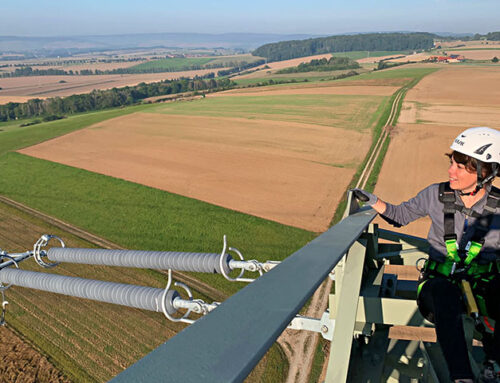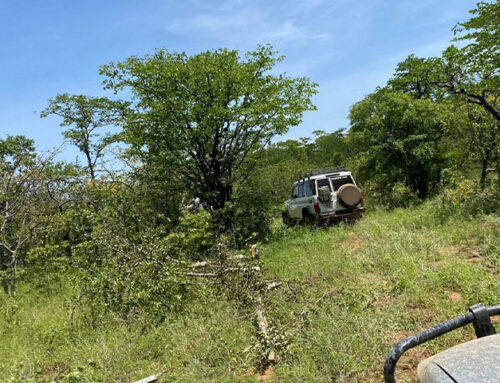COVID-19 in the Philippines
Lockdown in Paradise
Here in the Philippines, the government has taken extreme measures and has now declared a state of calamity throughout the entire country. The main island ‘Luzon’, which is home to Greater Manila, is under lockdown and widespread curfew. More than 50,000 police officers and the military have been mobilized in Manila to enforce the lockdown and curfew, while domestic flights have been almost entirely suspended. Last week, a flight from Cebu to Dumaguete had to turn around in mid-air and return to Cebu with crying passengers on board. Any foreigners wishing to leave the Philippines can theoretically still do so via Manila Airport, but only if they somehow manage to get to Manila in the first place. Many of them are stranded somewhere. Almost everywhere in the Philippines, you first have to self-isolate for 14 days no matter where you come from. Meanwhile, only local residents are even being allowed entry into many towns and regions. Some of the islands further out in the Pacific have completely shut down, with residents living off fish, coconuts and their provisions for as long as they last.
It took just one week to get from the first warning signs to the current state of affairs!
I have been working for Fichtner in Manila for about five years now and am responsible for business development in Korea, Myanmar, the Philippines and, now only to a limited extent, in China. The first confirmed cases of COVID-19 in the Philippines occurred around two weeks ago. Prior to that, hardly any tests had been carried out. Up until then, many including me thought that the country would be protected from the epidemic by its hot climate and very young population.
On Tuesday 10 March 2020, the first rumors and denials by politicians began to circulate in the press about an impending lockdown of Greater Manila. That set all my alarm bells ringing. A lockdown in Metro Manila, a region with 13 million inhabitants. What will that mean? Supply shortages, long queues, violent riots?
The next morning, I booked a one-way ticket to Dumaguete. I chose that town on Negros Island because I know it well and have friends there. On Wednesday, I took my belongings out of my apartment and put them in the Fichtner office so that I would be able to cancel the lease on the apartment from afar if I needed to. On the morning of Thursday 12 March, I went to the half-empty airport and took a half-empty flight to Dumaguete.
Within 24 hours, the lockdown was announced for Sunday 15 March. Anyone who could still get out of Manila, did so. And there was pandemonium at the airport. A good friend of mine and his wife, who both work for international development banks, left for Sydney with their young daughter on the Saturday.
Apo Island
My destination in Dumaguete was the Hotel Coco Grande which, by the way, is a great insider tip for anyone who ever ends up in Dumaguete. For only a fraction of the price of a 5-star hotel, it ticks all the right boxes. The rooms are also big, with a proper desk and decent internet (15 Mbps). So my plan was to stay there for a while working as a digital nomad, and to go diving at Apo Island, about a half hour’s boat ride away, at the weekend. Apo Island is a tiny island with no cars on it. It is renowned for its coral reefs and sea turtles that you can get a good look at when snorkeling.
What I did not know was that access to Apo Island had already been restricted to local residents since Friday. Somehow, and by somewhat unconventional routes, I did nevertheless manage to make it to Apo on Saturday morning. It was the last day on which that was at all possible.
So there I was, following the hourly news updates from the different parts of the country. The situation was (and is) basically almost like in the Middle Ages, with each provincial ruler proclaiming his own measures. All forms of getting around in the Philippines increasingly bore an incalculable risk of you becoming stranded somewhere or being placed in quarantine. The idea dawned on me that I might stay on Apo Island for the time being. Firstly, there was no longer any regular ferry service to the mainland (Negros Island) and, secondly, I would presumably have to spend 14 days in self-isolation in Dumaguete.
I hesitated in making that decision at first, knowing that it would likely provoke a certain amount of mockery and envy. At that time, the virus crisis was not really being taken seriously by many in Germany.
But then I did actually decide to stay on Apo Island for the time being. After all, there was no other way.
Now I thank the heavens every day that I escaped the inferno in Manila and ended up on Apo Island as a result of my timely reaction, the help of some good friends and a big slice of luck.
Working as a Digital Nomad
Working as a digital nomad is perfectly manageable. You need a certain amount of self-discipline and have to adjust somehow, as do my colleagues in Germany now as they work from home. It is important to me to have something of a routine, a daily schedule with certain segments allotted as work time. Here on Apo, I have now set myself up accordingly. The internet connection via mobile phone hotspot is sufficient. But what I miss is the large monitor screen at my office. After all, a 12.5-inch screen really is quite small. Certain things cause me difficulties, like the tiny ants that want to crawl into my notebook and the fact that the electricity is available only from 9:00 to 12:00 and from 18:00 to 22:00. This means me having to take a break from around 13:00 to save a part of my battery for the afternoon in case something urgent comes in. I can switch the computer back on at about 16:00. Then the battery will last until 18:00, at which time the electricity comes back on. I also have a pretty big power bank for my mobile phones. So it all works out!

View from my hotel room
By the way, we at Fichtner have done work relating to the power supply on Apo Island, preparing a feasibility study and conceptual design for a solar PV/diesel/battery hybrid solution as one of 12 island projects for a private developer back in 2017. Sadly, the project has not yet been implemented because the client’s priorities have since changed. The scarcity of water on Apo would also make the island a wonderful candidate for a combined water/desalination/power project, which would be simply ideal for Fichtner with its interdisciplinary expertise. I have been thinking a lot about this and have discussed it with our PV experts. I hope that I might yet be able to find a way for us to go about it. After all, I have plenty of time to ponder at the moment.
The Philippines responded comparatively quickly and radically. There is, however, a lack of tests. The poor in Manila, many of whom live hand to mouth, have already been hit hard, as they were left without any income from one day to the next due to the lockdown. There have already been the first acts of violence. If the virus were to spill into the slums and slum-like districts, the consequences could be dramatic.
I do, of course, also follow the news in Germany. An article in Forbes Magazine argues that the remarkably low death rate in Germany is due to the fact that most of the early cases tended to be fairly young, fit skiers who picked up the virus in Italy.
Here on the island, there is a strange atmosphere and great concern that somehow a case could indeed be imported. I barely leave my room and only go to the restaurant to eat. I once went to the village briefly, but some of the people there gave me suspicious looks. The locals go out fishing in their small boats in the morning like in the old days, because most of them have no income anymore. In the evenings, I can hear them singing in the church. From my room, I have a magnificent view over the sea and can watch young sea turtles paddling around in the shallow water undisturbed by noisy boats. How crazy!
April 2020

Karl Peter Schleich
Former Director Business Development East Asia at Fichtner





